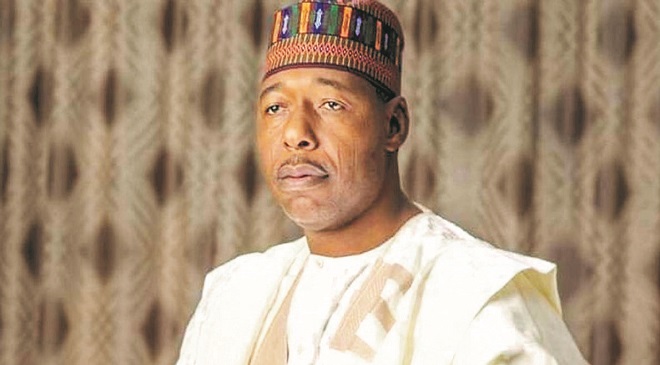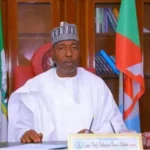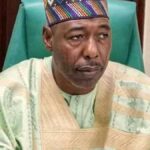Since it stopped the heart of the nation last week, the Zabarmari massacre has become a test of our national compassion. But the slaughter of forty-three farmers in a place just about 20 kilometres away from Maiduguri—and with horrifying images to accompany the stories—isn’t the main detonator of this cascade of outrage against the government. So many groups have lost a higher number of members in such barbaric fashion, and yet largely ignored. The few citizens who rose to speak out in the past were gaslit and sidelined by a government that’s overstated its pledges to protect they now sound like a vulgar insult.
The trending reactions to the Zabarmari massacre aren’t because of the proof of the deaths saturating our cyberspace and amplified in the media. They are a precise reflection of the sour mood of the nation. Since that state-sponsored interception of #EndSARS protests, a regiment of angry citizens online has perched on the high hills of civic engagements to track the shortcomings and excesses of the Buhari-led administration. These citizens, who had witnessed how the government played down the Lekki shootings, had been converted into vigilant sceptics, and the latest massacre is easily a confirmation of their fear.
Like Vladimir and Estragon of Samuel Beckett’s Waiting for Godot, the optimists among them waited, day in, day out, for leadership. Each passing day, since the attack, came with a request, and demonstration of unusual faith in the President. Although the much-expected Mr. Godot lounging in Aso Villa never showed up, his emissary, Garba Shehu, came with a message. The unlucky farmers murdered, he said, didn’t get clearance to till the land. They shouldn’t have been in the fields. That’s akin to saying they require a license to exist. One wonders what Mr. Godot would’ve said if he had appeared to talk to the people who had just buried their loved ones, and helpless.
In the spark of this came the example of Governor Babagana Umara Zulum. The Borno state Governor served as a benign alternative to Godot. He attended the mass burial, visited the grieving, and walked in their shoes to offer what the absent Godot could’ve done: empathy and assurance. Zulum didn’t only weep and legitimize the grief of these people, he also initiated the quest for solutions.
When Zulum walked into our life in 2019, there was an understandable scepticism of his populist posturing. Nigerians had watched such style of his servant-leadership, and their evolution into a circus: in Imo state, former Governor Rochas went to the point of assisting a roadside maize seller to roast her ware and babysitting random children of his people; in Rivers state, it was Amaechi plaiting the hair of his residents; former Governor Mu’azu Babangida Aliyu of Niger state set up a regular town-hall meeting called Jama’a Forum where he met directly with his people and offered them grants; there was former Governor Ayo Fayose who implemented “stomach infrastructure” in Ekiti state; Zamfara state began its democratic journey in 1999 with the theatrics of Governor Ahmed Yerima who deployed shariah to identify with the Muslim masses he left impoverished.
Most of these self-style servant-leaders ended up as customers of the EFCC and ICPC, and almost all left office incredibly richer. They are the image most Nigerians see whenever any politician embarks on visiting motor parks to shake hands with commercial drivers and hawkers, visiting random residents unannounced to advertise their humility, and designing unsustainable cash-sharing programmes to be seen as some sort of Santa Claus. Strangely, some of these servant-leaders didn’t unravel until in their second tenures, or towards the end of their first tenure, and the damage to the critical sectors of the state was catastrophic.
While, based on these antecedents, it’s too soon to forecast Zulum’s brand, what must be emphasized is: unlike his predecessors, his showmanship is risky, and it’s excusable that an overwhelming number of political observers are praising him as the best of the current political pack in this part of the country. Even his immediate predecessor in Borno State, Senator Kashim Shettima, has endorsed his leadership at a recent event and went as far as saying the risk-taking former deputy was better than him.
Last July, on a food distribution trip to the camps of internally displaced persons in Baga, the Governor’s convoy was attacked by the Boko Haram, leaving two members of the civilian joint task force and a policeman wounded. The repeat of this attack in September, with several security officials killed, polarized commentaries on Zulum’s style. The deaths, his critics cited, are a reason to avoid the risky venturing into the heartbeat of the terrorists.
The arguments that Zulum must govern from his air-conditioned office in Maiduguri is a tacit endorsement of the Abuja-based Godot mocking the national call to action. Buhari’s perpetual indifference is, sadly, the alternative to Zulum’s adventures. The critics also argue that Zulum must be alive to govern but, in the records of Council on Foreign Relations (CFR), 1,249 people were killed in the past 11 months of enduring the monsters Zulum has chosen to confront headlong. We are in a war, and Zulum is boosting the morale of the nation by walking dangerously in the shoes of the Godot who, in just a month to his first electoral victory in 2015, vowed to “lead from the front” in the fight against Boko Haram if elected.
Strangely, when Mr. Godot’s representatives met with Zulum in Maiduguri after the attack, the solutions he presented to them were exactly some of the promises the then-presidential candidate made in his “leading from the front” speech in February 2015. These ideas for Mr. Godot included recruiting the vulnerable youths of the terrorist-ravaged areas into the armed forces, partnering with neighbouring states to exterminate the Boko Haram in Lake Chad region, hiring mercenaries to penetrate and clear the dreaded Sambisa Forest, providing the troops with sophisticated armoured personnel carriers, assisting in repatriating displaced residents accommodated in neighbouring countries, and availing palliative measures to the economically disadvantaged residents.
Zulum’s unpopular refusal to bask in his executive privileges—and venturing into the crevices of the defenceless civilians Lai Mohammed referred to as “soft targets” in his December 1 interactive session with journalists in Lagos—is the rebellion desired to amplify the danger surrounding the Vladimirs and Estragons waiting for President Buhari to kick. With a cast of overstaying service chiefs, collapsing and compromised security arrangement, and a dangerous mass awakening against the government’s inability to protect the people, a long silence is a security threat to take for granted at our peril.

 Join Daily Trust WhatsApp Community For Quick Access To News and Happenings Around You.
Join Daily Trust WhatsApp Community For Quick Access To News and Happenings Around You.


